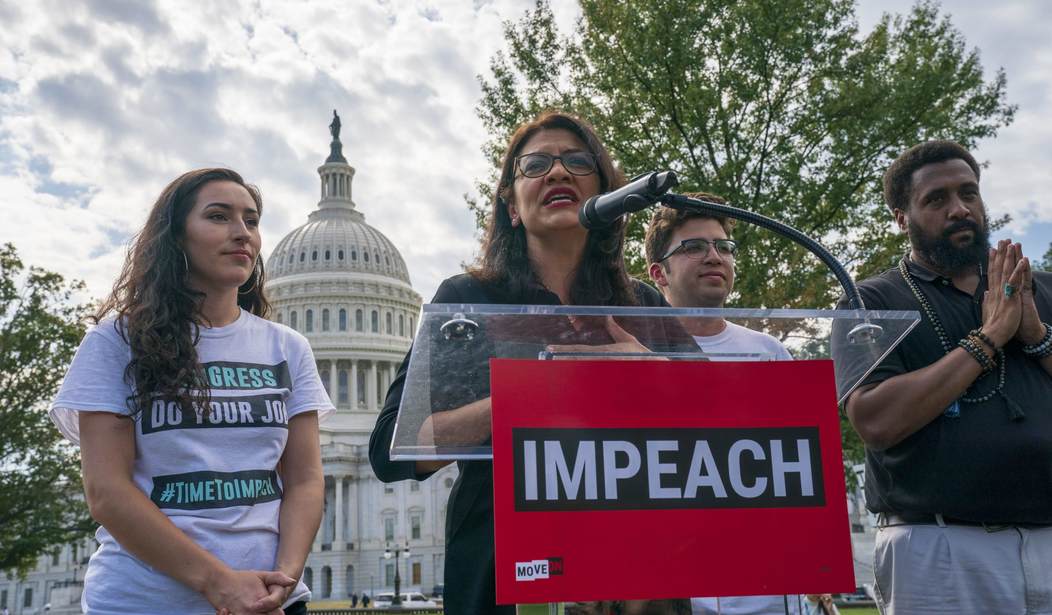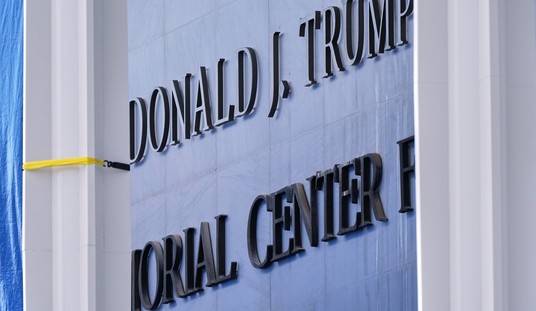Here’s a quick way to a major constitutional crisis and perhaps even civil war.
Rep. Rashida Tlaib said in an interview that Democrats are seriously considering arresting and jailing White House aides who refuse to comply with subpoenas and testify in the House impeachment inquiry.
The threat is unprecedented and even Tlaib recognizes this.
Tlaib told Deadline Detroit that such an action, known as inherent contempt, would be “uncharted territory” for Congress but added that “serious discussions” about taking the step have occurred within the Democratic caucus.
“There have been actual serious conversations about what the logistics would look like… if we did have to force someone through a court order to come before the Congressional committee,” she said. “This is pretty uncharted territory for many of us and even for Congress.”
“Uncharted territory,” indeed. Those aides are presumably shielded from testifying because they work for the president. In the past, presidents have allowed their employees to testify before Congress, but have been under no legal obligation to do so.
A recent example was during the Bush administration when the president refused to allow national security adviser Condi Rice to testify before the September 11 commission.
The White House’s refusal to permit National Security Adviser Condoleezza Rice to testify publicly and under oath before the commission investigating the Sept. 11 attacks is not unprecedented, according to legal analysts and a report by the research arm of the Library of Congress.
Presidential advisers and other White House staff members have on occasion testified about policy matters before congressional committees since the end of World War II — but far less frequently than Cabinet secretaries, who are subject to Senate confirmation.
Whatever their political or other motivations may have been, presidents have generally cited the separation of powers and the need for confidential and candid executive deliberations in explaining their resistance to testimony by those White House staff members who, like Rice, serve the president and are not confirmed by the Senate.
There is also a difference between a congressional subpoena and a civil subpoena issued by a court.
Congress’ power to issue subpoenas, while broad, is not unlimited. The high court has said Congress is not a law enforcement agency, and cannot investigate someone purely to expose wrongdoing or damaging information about them for political gain. A subpoena must potentially further some “legitimate legislative purpose,” the court has said.
What can Congress do to a government official who ignores one?
If lawmakers want to punish someone who ignores a congressional subpoena they typically first hold the offender “in contempt of Congress,” legal experts said.
Democrats want to skip the contempt process and go right to throwing executive branch employees not confirmed by the Senate in jail. Besides being unprecedented in modern congressional history, Democrats could be held in criminal contempt themselves.
It has been almost a century since Congress exercised this arrest-and-detain authority, and the practice is unlikely to make a comeback, legal experts said.
Alternatively, Congress can ask the U.S. attorney for the District of Columbia, a federal prosecutor, to bring criminal charges against a witness who refuses to appear. There is a criminal law that specifically prohibits flouting a congressional subpoena.
But this option is also unlikely to be pursued, at least when it comes to subpoenas against executive branch officials, given that federal prosecutors are part of the branch’s Justice Department.
Listen to Congressman John Garamendi talking about jailing executive branch employees:
Tlaib’s comments echoed those of Rep. John Garamendi (D-Calif.), who called for the House to do as much in a CNN interview earlier this week.
“I think it’s time to call in the sergeant-at-arms and march them off to our little jail, which we do happen to have,” Garamendi said on Wednesday.
“Let them sit there and cool off for a while,” he added.
He sounds quite pleased with himself. Too bad he’s advocating what amounts to kidnapping White House aides.
Democrats can dream about TV pictures of White House aides doing the perp walk, but if it happens the way that Tlaib and other Democrats apparently want, it will precipitate a constitutional crisis unknown in American history.










Join the conversation as a VIP Member